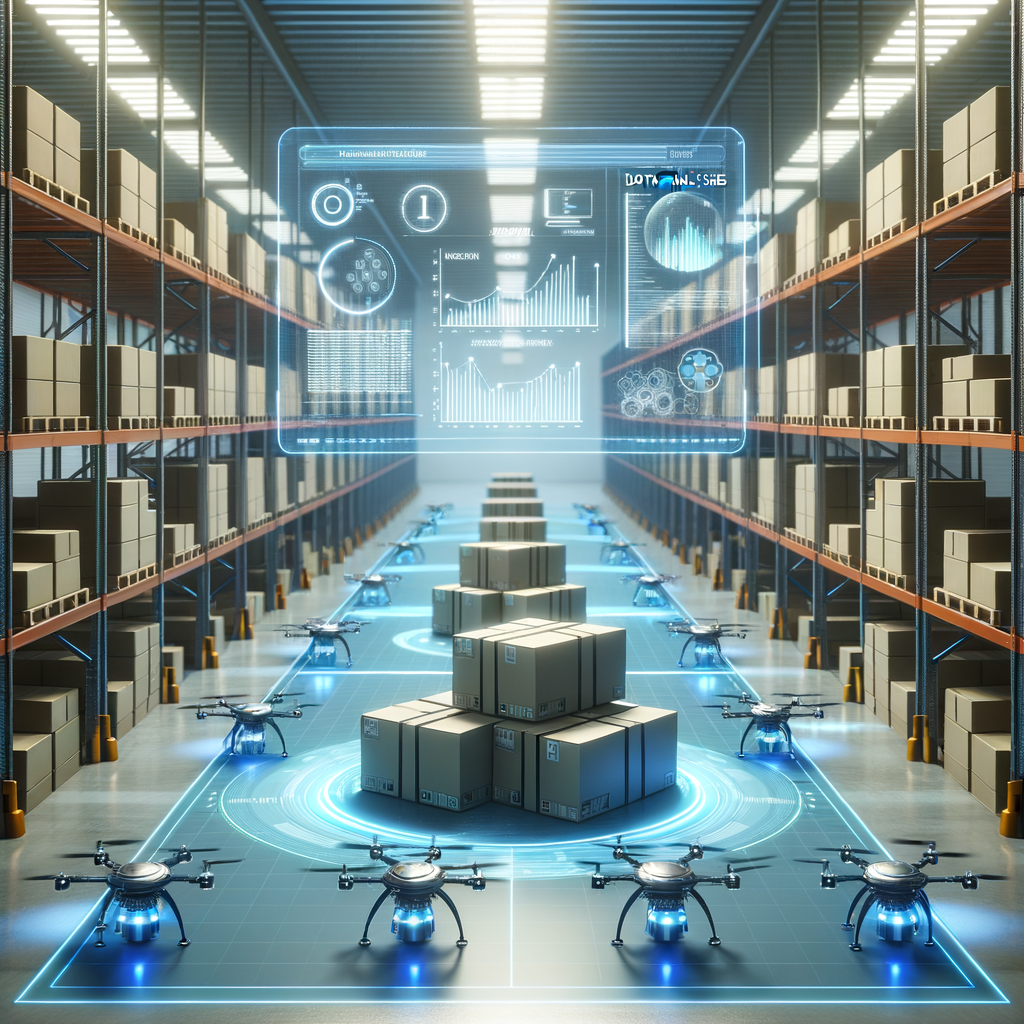
Navigating the Future: AI-Enhanced Supply Chain Management
Discover how AI is revolutionizing supply chain management by optimizing logistics, improving efficiency, and enhancing transparency. This blog post delves into the technologies transforming the industry, from predictive analytics to autonomous vehicles, and explores the future possibilities of AI-integrated supply chains.
Navigating the Future: AI-Enhanced Supply Chain Management
In the rapidly evolving world of technology, artificial intelligence (AI) is making profound impacts across various industries. One sector that stands to gain significantly from AI integration is supply chain management. This blog explores how AI technologies are transforming supply chain processes, enhancing efficiency, and paving the way for future innovations.
The Current Landscape of Supply Chain Management
Supply chain management involves the oversight of materials, information, and finances as they move from supplier to manufacturer to wholesaler to retailer to consumer. Managing these components efficiently is crucial for ensuring timely product delivery and maintaining competitive advantage. Traditionally, supply chain management has been reliant on human judgment and outdated systems, leading to inefficiencies and bottlenecks.
The Role of AI in Modernizing Supply Chains
AI technologies are now being employed to streamline supply chain operations, optimize logistics, and enhance decision-making processes. Here's how AI is making a difference:
Predictive Analytics
AI-driven predictive analytics enable supply chain managers to anticipate demand fluctuations, optimize inventory levels, and reduce waste. By analyzing historical data and external factors such as market trends and weather patterns, AI models can provide accurate forecasts, allowing businesses to make informed decisions.
Enhanced Logistics and Routing
AI algorithms are improving logistics by optimizing routing and scheduling. By considering variables such as traffic conditions, fuel costs, and delivery windows, AI systems can develop efficient delivery routes, reduce transportation costs, and improve customer satisfaction.
Inventory Management
AI-powered inventory management systems offer real-time insights into stock levels, enabling businesses to maintain optimal inventory levels. These systems can automatically reorder stock based on predictive analytics, ensuring that products are available when needed without overstocking.
Autonomous Vehicles and Drones
The integration of AI with autonomous vehicles and drones is revolutionizing last-mile delivery processes. Autonomous vehicles, equipped with AI navigation systems, can transport goods efficiently while minimizing human intervention. Drones are being used for rapid deliveries, especially in remote or hard-to-reach areas.
Future Possibilities: AI and Supply Chains
As AI technology continues to evolve, the future possibilities for AI-enhanced supply chains are vast and exciting. Some potential developments include:
Blockchain for Transparency
Combining AI with blockchain technology could enhance transparency and traceability in the supply chain. This integration would allow all stakeholders to track products at every stage of their journey, ensuring authenticity and quality.
Smart Contracts
AI-powered smart contracts can automate and enforce agreements between supply chain partners. These contracts can initiate payments or shipments based on predefined conditions, reducing the need for intermediaries and accelerating processes.
Risk Management
AI can analyze data to identify potential risks and disruptions in the supply chain, such as supplier failures or geopolitical events. By proactively addressing these risks, businesses can mitigate potential impacts and maintain continuity.
Challenges and Considerations
While the integration of AI in supply chain management offers numerous benefits, it also presents challenges. These include data privacy concerns, the need for significant initial investment, and the necessity of upskilling employees to work alongside AI systems. Businesses must carefully consider these factors when implementing AI solutions.
Conclusion
AI is poised to revolutionize supply chain management by driving efficiency, reducing costs, and enhancing customer satisfaction. As technology advances, businesses that embrace AI integration will be better equipped to navigate the complexities of modern supply chains and achieve sustainable success. The journey toward AI-enhanced supply chains is just beginning, and the potential for innovation is boundless.